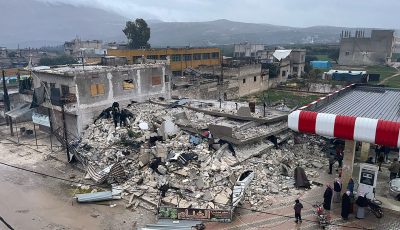Privacy
“Opening up and reform” is Deng Xiaoping’s mantra that opened the economic floodgates of the Chinese market. I ask my Chinese students to leave their “faces” outside the classroom door so that they can meet their authentic selves in speaking about their objective selves, feelings expressed, thoughts articulated, and willful acts openly planned and shared, through a foreign language. I request them to be more public and be less private.
In the last three months, a close associate called my attention to the issue of privacy. Surfing in cyberspace can easily distort personal images. I wrote an article where I mentioned the Chinese word “ni ge” sounding like the racist word “niggah” in relationship to a widely seen clip of the Clippers’ Donald Sterling. I also mentioned an associate of African descent. He indicated that he preferred his name not be associated with the word, an occurrence known to happen when Googling.
I wrote a “one year, one page” bioprofile for my grandsons and ended up sharing the output with the net of my immediate family. One of my relations was not too keen in having her children be identified by real names. Last week, I mentioned my four grandsons by name in this column and was quickly reminded that cyberspace has people who take advantage of real identities, and my narrative could serve my purposes as well with just fictitious names.
I do not think there was disapproval nor reprobation intended by those who expressed their preferences, as another colleague clearly stated that he did not doubt the nature of my intent, but nonetheless, in a time when media bombard us with images of the bogeyman lurking not too far afar, it is not surprising that our reflexes go on defense, and be vigilant on offense when necessary.
The contrast is stark. Chinese culture needs to open up to the value and virtue of being truly a real individual rather than just be a peon in a crowd, or digit in a unit of a roll call. Conversely, we have a digitized world where one can cheaply access the record of everyone in the public domain, on one’s profile and those of others, much to the chagrin of those who would rather keep certain information private.
As a journalist, I am aware how easily a distortion in perception can be manipulated, if not abused on the printed and broadcast media. Many a writer and a broadcaster takes cover behind “reliable sources” to disguise blatant slants for the sake of favored sensationalized story. It is thereby understandable that many would rather stay away from exposing their details to open public stare.
Privacy, however, is an internal state of integrity rather than an antiseptic slate of social standing and privileged psychical space. It is not a territory to be guarded by anxiety-filled defense granted the sordid intents of others. There is the disturbing trend to turn into protected public face, where privacy is equal to keeping a socially acceptable, or even safe profile without the gauge of authenticity, truth, and reality. That’s when anxieties override the carefree but authentic living of our lives, to defending and refurbishing our public image.
There are programs in the Internet that provide introductory 99 cents’ offer to access all the public record of a bioprofile (civil and criminal), plus identified relations; they even a list the number of attempts made by others to access one’s record. (A disclaimer: I had not availed of the service so I do not know if the offer identifies who accessed my record.)
Still, I do not mean to invalidate the fears of many with regards to the perceived invasion of their privacy, nor will I discard their fears. Privacy is a legally protected terrain, though anything on public record is fair game for the asking. There lies the scare; we teeter between the “public’s need to know” as well as guard “privileged information” as a matter of personal right. Many in the West are getting used to the objective accessibility of information on public records now made available in the digitized world.
With incidences of young children suing their parents so they can chart the course of their own destiny over and above parental wishes, parents and grandparents can no longer be cavalier in their mention of real names in their recollections, memoirs, and personal narratives. That’s what this grandpa was called to account when I casually mentioned actual names of, inter alia, my children and grandchildren.
This column has, however, been clear that we do not write about a theme or a topic to inform or conduct a cognitive discussion, or mention our self so others can know us, but to elicit from readers their own reflections of their circumstances, personal and social, using my own experience and relation to trigger the reflective exercise.
Privacy, a slippery slope, heads in many directions. In the West, it is spilling out into the public domain with the visualizing capacity of drones equipped with cameras, and fears of invasion of privacy have become rampant. On the other hand, where there is a long tradition of hiding behind veiled doors and great walls, we know that opening up is the only option for reform.



























